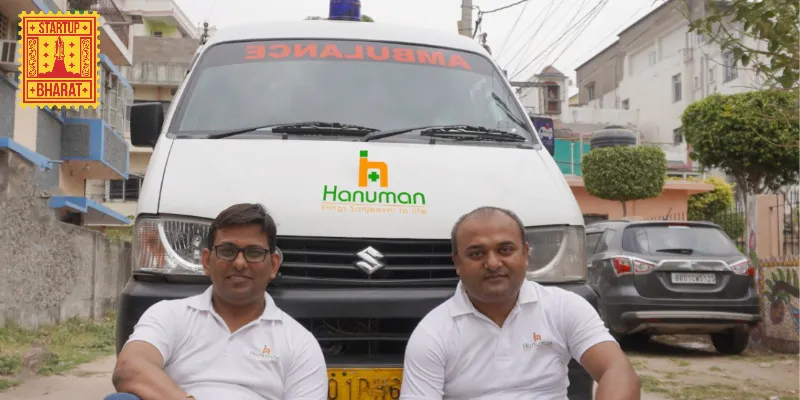[Startup Bharat] 5 Bihar startups who are bringing modern tech solutions to the state
From co-working to agritech startups — Bihar startups are bringing modern solutions to ensure entrepreneurship is not considered only a 'metro’ phenomenon.
While India has a vibrant startup ecosystem, it is often confined to metros and Tier I cities. States like Bihar, Jharkhand, Uttar Pradesh, West Bengal, and Odisha, a few Tier II and III towns, and rural India lack an entrepreneurial ecosystem, which inhibits their opportunities.
Bihar — a state often known for its acumen in politics — is now showing its entrepreneurial spirit. From co-working to agritech startups — Bihar startups are bringing modern solutions to ensure entrepreneurship is not considered only a 'metro’ phenomenon.
Karekeba Ventures
Established in October 2020, Karekeba Ventures (Kare-ke-ba: ‘We must do it’ in Bhojpuri) was founded by Anubha Prasad, Divyanshu Verma, Kshitiz Anand, Avantika Sahay, and Kushagra Aniket to nurture, incubate, seed-fund, and accelerate early-stage startups in ‘Bharat.’

The Patna-based venture focuses on grass-root level startups that have scalable product and service ideas to create investment-ready and employment-generating enterprises.
It works as an enabler across three verticals — incubation, acceleration, and investment — to empower homegrown enterprises in smaller towns, and also applies the lens of impact while curating them.
“We are trying to solve the twin problems of lack of entrepreneurial ecosystem, handholding mechanism, and investment platforms in ‘Bharat’ for startups, and lack of impact investment opportunities on the part of the investors,” says 52-year-old Anubha, who moved from Delhi to give back to her home state.
The founders claim that Karekeba is a first-of-its-kind incubator-cum-angel investment platform in Bihar.
Karekeba is also working on devising a collaboration model with the Bihar government to take the startup ecosystem in the state to the next level and has a knowledge partnership with E-Cell, IIT Patna, and several other institutions.
Karekeba is looking to add more startups from Bharat in its cohort and is engaging with the premium institutes of Bihar, Jharkhand, and Uttar Pradesh to get high potential and innovative startups to build its pipeline.
Read the full story here.
Oplus Coworking
After working with investors, accelerators, and incubators across the globe, Preetesh Anand decided he wanted to give back to his home state.
In 2019, he launched Oplus Coworking — a Patna-based coworking space — that works with startups, small businesses, freelancers, and companies and offers office space, networking and collaboration opportunities, and cost-efficiency.
“Our vision is to create a national coworking chain and help our local community,” says 31-year-old Preetesh.

Oplus Cowork provides an opportunity with “space-as-a-service,” capitalising on the secular shift towards more flexible, entrepreneurial, and collaborative work styles.
He bootstrapped the Patna-based coworking startup with Rs 20 lakh from friends and family and has made a total investment of Rs 75 lakh to date.
Spread over 5,000 sq ft at Bailey Road, Patna, offers several packages, starting from Rs 3,000 a month and going up to lakhs (based on corporate partnerships).
It has about 100 clients, from individuals to companies, including Bajaj Electricals, Flipkart, Batla, Jass and Art, Leafydecor, and AAHL (OMED).
Going forward, Oplus wants to focus on expansion to other small towns in India. It is targeting Tier II and III cities, including Ranchi, Lucknow, Varanasi, and Indore, in the next phase of its growth.
Read the full story here.
Hanuman
Dr Niraj Jha — who received training in the emergency care segment — says the emergency care system is weak across India. For example, we mostly find junior doctors in the emergency care section, but we need the most senior doctors in place because one doesn’t know what case would come in.
Realising this need, Dr Niraj, along with his friend Santosh Singh, launched Medicvisor Pvt Ltd — better known by its brand name Hanuman — in 2020.
The Patna-based last-mile delivery service provider offers immediate healthcare solutions, including ambulance services, diagnostic services, and home healthcare.
“Ambulance availability was already an issue in the country, and COVID-19 only accelerated the problem by increasing its demand. In Patna, we also saw the soaring prices of ambulance services where a 10 km journey was charged around Rs 20,000. We decided to solve the issue through Hanuman,” Dr Niraj says.

Dr. Niraj Jha and Santosh Singh, Co-founders, Hanuman [Image Credit: Hanuman]
Dr Niraj reveals that Hanuman’s journey began in July by launching a toll-free number to connect with ambulance services. The startup also launched e-rickshaw ambulances equipped with oxygen cylinders to meet the growing need.
Hanuman is also one of Karekeba Ventures’ portfolio companies.
The startup claims to have served 7000 patients since July. ”For basic life support ambulances, the base fare is Rs 700 plus Rs 15 per km, and in case of advanced life support ambulance, users are charged Rs 300 base fare along with Rs 35 per km,” says Dr Niraj.
It is also looking to include transactional healthcare services like insulin administration, ECG check-up, fetal doppler, and eye checkups as a part of its home healthcare services.
Read the full story here.
Maytree School of Entrepreneurship
Rohit Kashyap started the Maytree School of Entrepreneurship in 2020 when he was 18 years old, which is already profitable and has mentored several aspiring entrepreneurs and ventures in rural and semi-urban areas.
According to Rohit, 92 percent of SMB owners agree mentors have a direct impact on the growth and survival of their ventures. However, 90 percent of startups shut down within five years of their launch due to a lack of mentorship and planning.
“This is the problem we are trying to solve by providing quality mentorship from founders and top executives in the ecosystem,” says Rohit, also the CEO of Maytree.

Maytree is actively working with Startup India and other government departments to help its mentees. Rohit says Patna was a natural choice as he was based there as an entrepreneur for five years and is aware of the problems faced by startups in Tier II and III towns.
Since its inception, Maytree has mentored more than 1,200 students worldwide and incubated more than 50 revenue-generating startups, including MagTapp, AryaGoCab, and Bhavesh Pharmaceutical, to name a few.
Maytree is also planning to collaborate with the government to teach entrepreneurship at the panchayat level.
Read the full story here.
Saptkrishi
The Food and Agriculture Organisation (FAO) says 40 percent of horticultural produce worth $8.3 billion is wasted every year due to inadequate logistical support, lack of refrigerated storage, supply chain bottlenecks, poor transport, and underdeveloped marketing channels.
To solve this problem, Nikky Kumar Jha started Bhagalpur-based agritech startup Saptkrishi in 2019 with his sister Rashmi Jha.
The startup has created transportation solution Sabjikothi or Preservator — a low-cost, IoT-enabled chamber-cum-storage — which can be used to extend the shelf life of horticultural produce from three days to 30 days. The wheel-mountable, microclimate-based storage is cost-effective and portable.

The founders say Sabjikothi extends the shelf life of perishable horticultural produce through the construction of a high-humidity, sterile isolated chamber of plasma (ionised air), which oxidises ethylene (a hormone that fastens ripening of fruits and vegetables) into small molecules, delaying browning and ripening, and regulating the activity of the antioxidant enzymes.
At present, Saptkrishi is accelerated at IIT-Kanpur. It was earlier incubated at IIT-Patna and was doing paid pilot trials through various public and private collaborations, including with the Indian government, Bill & Melinda Gates Foundation, and consulting firm Microsave.
Nikky says the USP lies in the fact that it is a zero-chemical, non-cooling, and completely green technology priced at Rs 10,000. “It is a valuable one-time investment and will last multiple harvest seasons. It increases the RoI for farmers and traders, and opens new opportunities and bigger markets,” he says.
In the last year, Saptkrishi has deployed more than 40 units and is working on more than 350 pre-orders.
The founder says Sabjikothi provides a completely decentralised and cost-effective solution as the product requires very little power and can be assembled on any means of transportation, making it ideal for small and marginal farmers.
Read the full story here.
Edited by Suman Singh


![[Startup Bharat] 5 Bihar startups who are bringing modern tech solutions to the state](https://images.yourstory.com/cs/2/70651a302d6d11e9aa979329348d4c3e/SB2-1616589233035-1625141207527.png?mode=crop&crop=faces&ar=2%3A1&format=auto&w=1920&q=75)

![[Startup Bharat] How Ahmedabad-based coworking startup DevX kept going amidst the pandemic](https://images.yourstory.com/cs/2/a9efa9c02dd911e9adc52d913c55075e/SB-1622716967961.png?fm=png&auto=format&h=100&w=100&crop=entropy&fit=crop)
![[The Turning Point] How a personal loss motivated these entrepreneurs to start an Uber for ambulances](https://images.yourstory.com/cs/2/70651a302d6d11e9aa979329348d4c3e/RavjotPranavFounders1-1621594101808.jpg?fm=png&auto=format&h=100&w=100&crop=entropy&fit=crop)
![[Tech30] How a small-town boy from Bihar built a product used at NASA, Uber, and Intel](https://images.yourstory.com/cs/2/25e9e0e0605211e984534d4121ad4bb6/800x400-i1-1603518680332.png?fm=png&auto=format&h=100&w=100&crop=entropy&fit=crop)





